2025 Keynote Speakers
(Speakers will be updated as details come in)
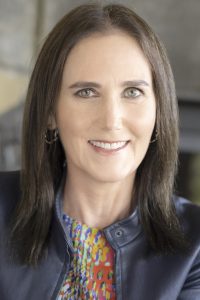
Shari Eberts, MBA
The Unsung Key to Positive Aging: Skillful Living with Hearing Loss
Addressing hearing health is critical for living well, yet hearing loss in older adults is often dismissed as simply a “normal” part of aging. Its full emotional impact is difficult to understand, even for those who regularly work with clients who have hearing loss. Delivered with the compassion, humor, and expertise that comes from lived experience, this session illuminates the important relationship between communication and well-being and provides skill-based strategies to help people with hearing loss live vibrant, communication-rich lives. The audience will leave the session with increased empathy and a list of actionable steps to help support their clients who live with this invisible disability.
Biography
Shari Eberts is a passionate hearing health advocate, author, and speaker on hearing loss issues. She is the founder of LivingWithHearingLoss.com, a popular blog and online community for people with hearing loss, and an executive producer of We Hear You, an award-winning documentary about the hearing loss experience. Shari has an adult-onset genetic hearing loss and hopes that by sharing her story, she will help others to live more peacefully with their own hearing issues. Her book “Hear & Beyond: Live Skillfully with Hearing Loss” (co-authored with Gael Hannan) is the ultimate survival guide for living with hearing loss. Shari holds a BS in Psychology from Duke University and an MBA from Harvard Business School.
Pick up your copy at the conference bookstore and meet the authors for a signing.
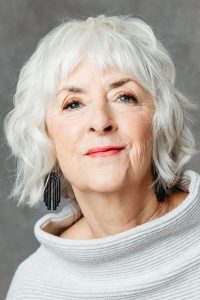
Gael Hannan
The Unsung Key to Positive Aging: Skillful Living with Hearing Loss
Addressing hearing health is critical for living well, yet hearing loss in older adults is often dismissed as simply a “normal” part of aging. Its full emotional impact is difficult to understand, even for those who regularly work with clients who have hearing loss. Delivered with the compassion, humor, and expertise that comes from lived experience, this session illuminates the important relationship between communication and well-being and provides skill-based strategies to help people with hearing loss live vibrant, communication-rich lives. The audience will leave the session with increased empathy and a list of actionable steps to help support their clients who live with this invisible disability.
Biography
Gael Hannan is a hearing health advocate, writer, and speaker/performer who lives with profound hearing loss. She creates award-winning awareness projects that help people live more successfully with their hearing challenges, including the acclaimed one-woman show “Unheard Voices,” a humorous memoir “The Way I Hear It: A Life with Hearing Loss” and a regular blog for HearingHealthMatters.org that has a passionate international following. Gael has profound hearing loss and is bimodal, using both a hearing aid and a cochlear implant. “Hear & Beyond: Live Skillfully with Hearing Loss” (co-authored with Shari Eberts) is the supportive how-to guide she wishes she’d had at the start of her hearing loss journey.
Pick up your copy at the conference bookstore and meet the authors for a signing.
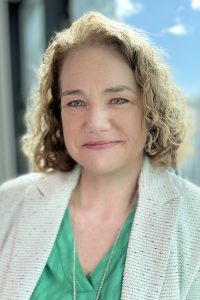
Stephanie Hopper, President & CEO of AGE+
Innovating Aging—Shaping Oregon’s Future for All Generations
Oregon is at a pivotal moment, with the potential to lead the nation in aging innovation by recognizing older adults as valuable assets rather than burdens. As the population ages, we must rethink aging as a driver of economic and social progress, ensuring our communities are inclusive, connected, and prepared for the future.
In this keynote, Stephanie Hooper, President & CEO of AGE+, will explore how strategic policies, cross-sector collaboration, and innovative solutions can transform aging into an opportunity for growth and shared prosperity. Attendees will gain insight into AGE+’s groundbreaking initiatives, including:
- Digital literacy pilot programs that bridge the technology gap for older adults.
- Innovative affordable housing models that promote stability and intergenerational connection.
- Anti-ageism education and leadership transformation to break down systemic barriers.
By learning from global best practices and forward-thinking strategies, participants will leave with actionable insights to drive change in their own communities. Together, we can build a future where aging is a source of strength, innovation, and opportunity for all generations.
Biography
Stephanie Hooper is a visionary leader and changemaker in the nonprofit and financial sectors, with over 30 years of experience driving impact through innovation, advocacy, and strategic growth. As the President and CEO of AGE+, she leads groundbreaking initiatives to ensure that older Oregonians—particularly those in rural and underserved communities—have equitable opportunities to age with dignity, connection, and purpose.
Stephanie is also leading the effort to develop Oregon’s Multi-Sector Plan for Aging, a statewide initiative aimed at transforming policies, infrastructure, and services to support the state’s rapidly growing aging population. This effort brings together public, private, nonprofit, and independent sectors to create a comprehensive, age-friendly roadmap for Oregon’s future.
Her expertise spans affordable housing, intergenerational programs, digital equity, and policy advocacy, making AGE+ a statewide leader in aging issues. Under her leadership, AGE+ has spearheaded multi-million-dollar rural modular affordable housing projects, launched intergenerational digital equity initiatives, and established the Leadership Exchange on Ageism to challenge outdated perceptions and reshape policies that impact older adults.
Stephanie’s began her nonprofit career at the American Red Cross, where she modernized life-saving skills training as State Director of Health & Safety Services. She later held leadership roles at DePaul Treatment Centers (now Fora Health) and Pacific Continental Bank (now Umpqua Bank), where she refined her expertise in financial sustainability, program development, and nonprofit leadership.
A third-generation Oregonian, Stephanie is a Senior Fellow of the American Leadership Forum of Oregon and has served on its Board of Directors. She is deeply committed to social justice, education, LGBTQ+ advocacy, youth leadership, and aging services. She continues to be a driving force behind community-led solutions, consistently championing systems-change work and the power of collaboration to strengthen Oregon communities across generations.
2025 Breakout Speakers
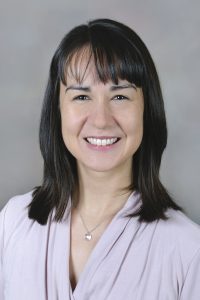
Laura K. Byerly, MD, Associate Professor of Medicine, Oregon Health & Science University
Exploring Accelerated Aging: Evidence Behind the Intersection of Biology and Social Determinants of Health
Accelerated aging is a term that applies to individuals who are experiencing physiological aging at a rate outpacing their chronological age; it frequently occurs in those who have experienced chronic stress, trauma, and have negatively impacted social determinants of health. Individuals experiencing accelerated aging are at higher risk for geriatric syndromes such as falls, incontinence, and cognitive impairment, but these conditions may go unnoticed in the primary care clinic as the person’s chronological age is not considered “geriatric.” In this session, we will explore the concept of, and risk factors for, accelerated aging. We will demonstrate how social determinants of health and life experiences cause accelerated aging, particularly systemic racism, military trauma, and houselessness. We will review tools to help identify individuals at risk for accelerated aging in the community and healthcare setting.
Objectives:
- Describe the term “accelerated aging” and identify adults who are at higher risk of experiencing accelerated aging.
- Describe how accelerated aging affects the development of geriatric syndromes at younger chronological age.
- Identify opportunities for the community and healthcare team to help optimize the care of adults experiencing, or at risk for, accelerated aging.
Biography
Laura K. Byerly is a clinician educator and geriatrician at Oregon Health & Science University (OHSU) in the Division of General Internal Medicine & Geriatrics. She cares for older adults in OHSU’s Internal Medicine Clinic and affiliated post-acute and long-term care facilities. Dr. Byerly focuses on age-friendly education for trainees and primary care teams, particularly in rural and underserved settings. She is passionate about the effects of social drivers of health on the lifespan and considering ways in which inequities and disparities affect aging physiology. She leads the Oregon ECHO Network’s Geriatric Care in an Age-Friendly Health System and Deprescribing in Primary Care programs. As the program director for the HRSA-supported Oregon Geriatrics Workforce Enhancement Program (GWEP), she drives initiatives to train and improve Oregon’s workforce for holistic, interprofessional care in tribal, underserved, and rural communities.
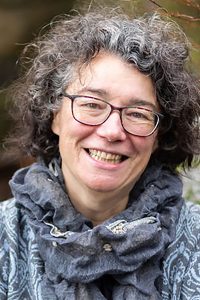
Karen Cellarius, MPA, Senior Research Associate, Portland State University, Co-Investigator, Oregon Center of Excellence for Behavioral Health and Aging (OCEBHA)
Promoting Protective Factors for Older Adults through PEARLS, a Program to Encourage Active, Rewarding Lives
There is a documented “epidemic of loneliness” among older adults in the United States, which is a risk factor for multiple physical and behavioral health issues. PEARLS is a loneliness intervention developed by the University of Washington that is available in a variety of locations around Oregon. This presentation will discuss the epidemic and its associated risk factors and also describe PEARLS and the outcomes it has achieved in the state to date.
Biography
Karen Cellarius, MPA, has spent the past 25 years providing consultation and evaluation of human services and prevention programs. Her expertise includes systems change, suicide prevention, mental health, behavioral health, healthcare integration, and services for marginalized populations, homeless youth, older adults, Veterans and other members of the military. She specializes in developing and implementing tools to assess fidelity to evidence-based and promising practices, using those tools to provide consultation to community partners on system improvements to support their workforce and service recipients. She is currently director of the PSU Human Services Implementation Lab and principal investigator on multiple OHA initiatives, including three that have a special focus on older adults: OHA’s Comprehensive Suicide Prevention Initiative, Zero Suicide in Health Systems and OPAL (Options for People to Address Loneliness). In addition to OHA, her current project-related partners include the Association of Oregon Community Mental Health Programs (AOCMHP), individual CMHPs and several county mental health departments around the state. She sits on the data and evaluation workgroup of Oregon’s Alliance to Prevent Suicide, which is made up of a multidisciplinary team that includes NAMI, Lines for Life, and OHA. Ms. Cellarius has presented at national conferences, provided testimony to the Oregon legislature and prepared research findings into policy reports.
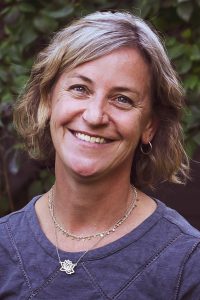
Erin Collins, MN, RN, CHPN, Director of Programs, The Peaceful Presence Project
Public Health Palliative Care: Supporting Each Other through Advanced Illness, Death and Grief
One of the main commonalities we all share is that each of us, and everyone we meet, will experience illness, death and grief at some point in our lives. Public Health Palliative Care states that these experiences are everyone’s responsibility- we all have a role to play in showing up for one another during difficult times. In fact, 90% of a person’s bereavement support needs have been shown to best be met by friends, family and community-based supports.
The Peaceful Presence Project in Bend is cultivating this Public Health Palliative Care Model by building an Oregon Network for Community-Based Serious Illness Support. In this session, learn the role of community members in navigating the journey through serious illness, dying and grief and how we can each show up with compassion for our neighbors, family, friends and coworkers.
Biography
Erin is a Certified Hospice and Palliative Care Nurse with 17 years of experience in hospice, palliative care and oncology. She co-founded and co-directs a community-based organization in Bend, Oregon.
Erin is a board member for the Oregon Hospice and Palliative Care Association and an Oregon state ambassador for the Hospice and Palliative Nurses Association. She is a 2022 Cambia Health Foundation Sojourns Scholar with a project to develop continuing education in palliative care for community health workers. After seeing that many patients came to hospice afraid of death and largely unprepared for it, she committed to educating the community at all levels to prepare for and talk about serious and terminal illness with compassion and tenderness. She empowers families to be present with their loved ones and believes that by talking about and planning for serious illness and death, we can ease much of the suffering that arises at the end of life.
Erin is a graduate of the Being with Dying and GRACE programs at Upaya Zen Center in Santa Fe, New Mexico and a practitioner of Bedside Yoga for end-of-life care.
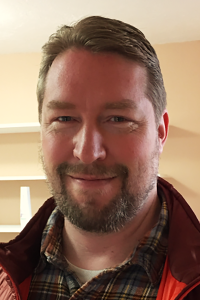
Christopher R Eilers, MA, LPC, Lane County Health and Human Services Department Older Adult Behavioral Health Specialist
Compassion Fatigue: Strategies to Recognize and Reduce Burnout
Learn to support staff at risk of vicarious trauma and burnout by providing stress inoculation training, mindfulness skills, and self-care strategies that support vicarious resilience and compassion satisfaction.
As a result of this presentation participants will be able to:
- Define “wellness”
- Define “advocacy fatigue” in the context of healthcare and social services
- Describe the impact of trauma on patients and staff
- Identify practical strategies for self-care and connection
Biography
Christopher has earned a Bachelor of Science in Zoology from Oregon State University, a Masters of Arts in Teaching from Pacific University, and a Masters of Arts in Counseling from Bushnell University. He is currently recognized by the State of Oregon as a Licensed Professional Counselor.
Christopher began his career in Behavioral Health Services in 2005 at the Center for Family Development, providing individual and family therapy to adolescents with co-occurring disorders. Next, he served adults identified with SMI at Lane County Behavioral Health by providing individual and group therapy, as well as case management. In 2011, he transitioned to an administrative and leadership role when he joined Lane Care, an organization responsible for managing the Behavioral Health system for Medicaid recipients in Lane County. He joined the Older Adult Behavioral Health Initiative in 2016.
Since joining the OABH Initiative, Christopher has been certified by many training organizations including: Mental Health First Aid, Connect Suicide Prevention/Post-vention, W.I.S.E., The Alzheimer’s Association, Trauma Informed Oregon, PEARLS, and the Crisis Prevention Institute.
As an educator, Christopher has focused on providing enlightening and relevant training to healthcare and aging services providers, as well as to the community at large. He has also been directly involved in the development of curriculum that presents new information and ideas about mental health and aging to a variety of healthcare providers and community members. He continues to integrate new evidence and approaches into improving the lives of older adults and people with disabilities.
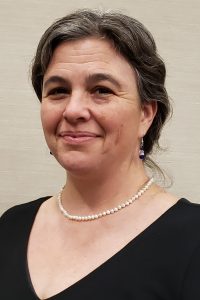
Kiersten Erickson, CHW, Health Minister
Reviving Faith Community Nursing in Rural Oregon
This session will chronicle the bumpy and oft surprising journey of a small group of passionate faith community nurses (FCNs) and health ministers as they embarked on interprofessional collaboration with local community-based organizations to rekindle engagement in faith community nursing and health ministry in rural East Linn County, OR. Attendees will hear how these local collaborations soon capture the attention of the Oregon Health Authority, the Oregon State Board of Nursing, local health system leaders, and Medicaid providers, resulting in high-level interest in faith community nursing and health ministry and how they are leveraging this increased visibility to gain acceptance of this important practice within faith communities in their own backyard.
At the completion of this session, attendees should be able to:
- List three partnerships that have shaped the recent resurgence of health ministry in Oregon
- Describe how faith community nurses, health ministers, and community health workers bring improved health equity to rural Oregonians
- Use examples to illustrate the importance of providing spiritual care in the context of an individual’s faith tradition
Biography
Kiersten is a certified Community Health Worker and volunteers as the voice of affiliated Health Ministers in her Faith Community Health Network Board position. She is employed full-time with Crossroads Communities in Lebanon, OR as the veterans’ liaison and client services advocate. She is actively involved as a Health Minister with Am HaSefer Oregon – People of the Book in Lebanon, OR. She is a native Oregonian.
Kiersten served as an Orthopedic Trauma Medic in the Army for six years and was part of establishing an orthopedic practice at Emanuel Hospital in northeast Portland after discharge. Kiersten trained and became licensed as a massage therapist while in this role, and these skills, along with empathy gained through life experience, brought a holistic aspect to the practice and equipped her to assist when conventional therapies did not produce the desired outcome.
She completed the Foundations of Faith Community Nursing/Health Ministry Course through the Faith Community Health Network and her Community Health Worker certification through Oregon State University.
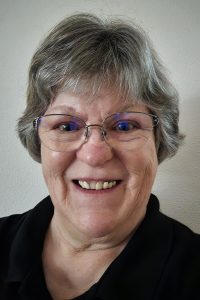
Deborah Fell-Carlson, BSN, MSPH, RN
Reviving Faith Community Nursing in Rural Oregon
This session will chronicle the bumpy and oft surprising journey of a small group of passionate faith community nurses (FCNs) and health ministers as they embarked on interprofessional collaboration with local community-based organizations to rekindle engagement in faith community nursing and health ministry in rural East Linn County, OR. Attendees will hear how these local collaborations soon capture the attention of the Oregon Health Authority, the Oregon State Board of Nursing, local health system leaders, and Medicaid providers, resulting in high-level interest in faith community nursing and health ministry and how they are leveraging this increased visibility to gain acceptance of this important practice within faith communities in their own backyard.
At the completion of this session, attendees should be able to:
- List three partnerships that have shaped the recent resurgence of health ministry in Oregon
- Describe how faith community nurses, health ministers, and community health workers bring improved health equity to rural Oregonians
- Use examples to illustrate the importance of providing spiritual care in the context of an individual’s faith tradition
Biography
Deb is President and Executive Director of the Faith Community Health Network, a non-profit organization located in Lebanon, OR with a statewide – and, at times, national – reach. She has been a faith community nurse since 2017 and founded and has led the Faith Community Health Network since its inception as a coalition in January of 2019. She has an active nursing practice in her faith community, Am HaSefer – People of the Book, in addition to service with the Faith Community Health Network.
Deb has been known nationally for her expertise in workplace safety, health, and wellness and served in the National Guard in South Dakota and Oregon for a total of 27 years, retiring as an Army Nurse Corps Lieutenant Colonel in 2003. She earned her Practical Nursing Certificate from Western Dakota Vocational Technical Institute, her Associate Degree in Nursing from Dakota Wesleyan University, her Baccalaureate Degree in Nursing from South Dakota State University, and her Master’s Degree in Public Health from Oregon State University.
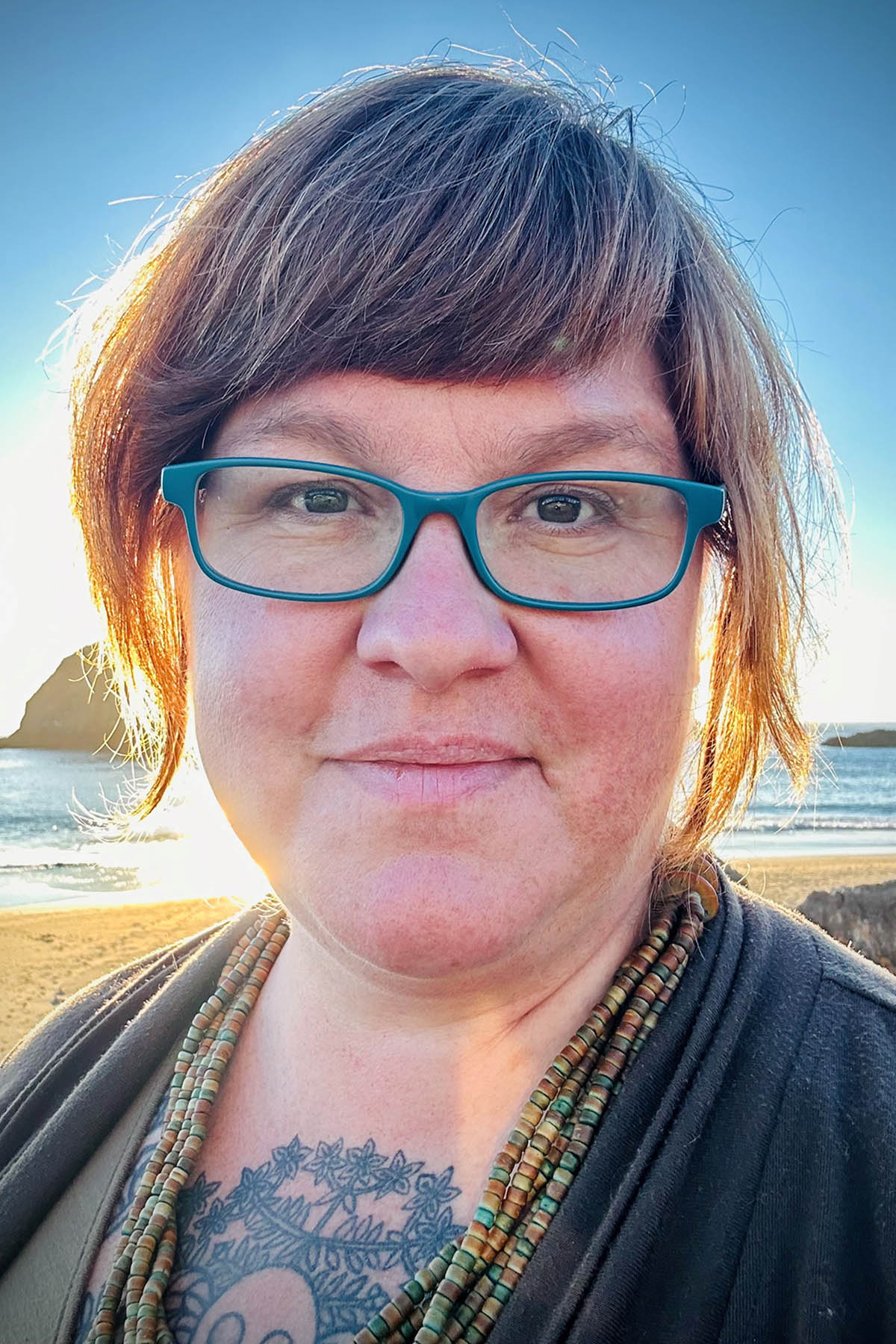
Angela Franklin, QMHA, EOLD, Older Adult Behavioral Health Specialist, Options for Southern Oregon
Navigating Advance Care Planning: Health Equity and Inclusion
Navigating advance care planning through the lens of health equity ensures that all individuals and caregivers receive the support needed to make informed healthcare decisions that reflect their values and preferences. By addressing systemic barriers, empowering community-based and professional support, and fostering culturally competent practices, healthcare and community-based settings can enhance the ACP process, ultimately leading to better health outcomes and provide improved quality of care for individuals and support for caregivers.
Session Agenda:
- A look at the current culture and research around advance care planning
- Key challenges and disparities faced in ACP implementation and delivery
- What are culturally-specific considerations in ACP (LGBTQ+, living with dementia, unhoused, etc)
- Creating health equity and inclusion in ACP
- Resources and champions that are shifting the culture around ACP
Biography
Angela is an advocate at the intersection of life’s most profound moments. As an Older Adult Behavioral Health Specialist, Suicide Prevention Coordinator, and Death Midwife based in Southern Oregon, she brings a wealth of knowledge and compassion to her work. She is a member of the Oregon LGBTQ+ Aging Coalition, heads the Josephine County Older Adult Health and Wellness Coalition, co-founder of Journey Home Support Services and collaborator on A Whole Family Matter Project. Her work as a death midwife, older adult behavioral health specialist, suicide prevention/postvention and community educator uniquely positions her to provide comprehensive support to those facing life’s transitions. Angela is committed to fostering connection and compassion within communities, while bridging community-based support with the local systems of care within healthcare and aging services. Her dedication to creating spaces of healing and growth reflects her unwavering commitment to the well-being of those she serves.
Angela is an advance care planning educator and advocate empowering individuals and families to navigate serious illness and complex end-of-life decisions with clarity and dignity. She has created trainings for both community members and support professionals around culturally-specific ACP and addressing health equity in the implementation and delivery of ACP across care settings and in the community.
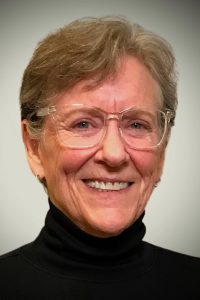
Liz James, Chair, Oregon LGBTQ+ Aging Coalition
LGBTQIA2S+ Older Adults, Understanding and Responding to Their Challenges
It is estimated there are approximately 2.7 million LGBTQIA2S+ adults aged 50 and older in the United States, 1.1 million of whom are 65 and older. “LGBTQIA2S+ Older Adults, Understanding and Responding to Their Challenges” provides a view of who they are and where they live and an overview of their unique needs and experiences so that service providers, advocates, and policymakers can consider these factors to reach and meet the needs of these populations.
Session Agenda:
- Who are LGBTQIA2S+ older adult populations, identities and issues
- Key challenges and disparities faced by LGBTQIA2S+ older adults
- Regulatory related requirements
- Creating a welcoming environment for LGBTQIA2S+ older adults
- LGBTQIA2S+ older adult resources
Biography
Liz James serves as Chair of the Oregon LGBTQ+ Aging Coalition (Coalition), Commissioner on the LGBTQIA2s+ Subcommittee of Governors Commission on Senior Services, Member of the RVCOG SDS Senior Advisory Council, and Volunteer Leader with AARP Oregon. She represented the Coalition in the development and 2023 passage of the Oregon Bill of Rights in long-term and community-based care for LGBTQIA2S+ residents and residents living with HIV, provided content expertise for the 2022 Age+ briefing paper, “Seen, Heard and Here – Older LGBTQ+ Oregonians“, was a Member of the 2020 Oregon LGBTQ+ 55+ Older Adult Survey Advisory Committee, and Co-chair and presenter for the 2019 Southern Oregon LGBTQ+ Health and Wellness Summit. As CEO of the Lesbian Health Initiative, a Houston-based LGBTQ+ health nonprofit, she developed and delivered LGBTQ+ Cultural Competency 101 Tools to Improve Patient Communication, Care and Outcomes, a multi-discipline CEU training course for healthcare professionals, researchers, and students. Before LHI, Liz enjoyed a many-year career as a high-tech sector business development executive.
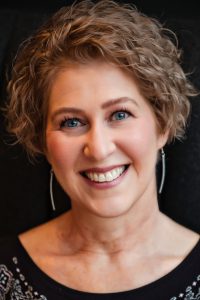
Ann McQueen, Ph.D., MS, Quality Assurance and Training Coordinator, Adult Protective Services (APS)
You Need to Know This!: Elder Protection and Adult Protective Services (APS)
In 2024, Adult Protective Services (APS) in the State of Oregon received over 56,000 complaints of abuse. That’s about 3,500 more complaints than in 2023. Although not all complaints are screened in for investigation or substantiated for abuse, these numbers indicate the pervasiveness of elder abuse in our state. In this interactive session, participants will learn about Adult Protective Services, the types of abuse we investigate, and how the investigative process works. We’ll also discuss mandatory reporting and when and how to report suspected elder abuse. This session will provide important information for anyone who works with older adults, whether in the community, in healthcare, or in long term care settings.
Learning Objectives:
Participants will be able to:
- Recognize the types of abuse investigated by Oregon’s Adult Protective Services (APS) Program
- Identify when and how to report suspected abuse to Adult Protective Services in Oregon
- Describe the process of an Adult Protective Services investigation
Biography
Dr. Ann McQueen has worked for the Office of Aging and People with Disabilities (APD) within the Oregon Department of Human Services (ODHS) for over 10 years, and she currently serves as the Quality Assurance and Training Coordinator for Adult Protective Services. Formerly, she served as the Community Services and Supports Manager, the Administrator of Safety, Oversight and Quality (Long-Term Care Licensing) Unit, and as the Research and Policy Integration Manager. Prior to that she worked as a policy analyst, a college faculty member, in roles related to various local government programs for older adults, and as an administrator in assisted living/residential care/memory care communities. She is especially interested in the experiences of people living with dementia and in helping to create a world that affords them the safety, respect, dignity, and companionship that all human beings deserve. Ann has a BFA in musical theater, an MS in Communication Studies, and a PhD in Urban Studies – Gerontology. She has presented at various conferences, both locally and nationally on topics related to aging, elder mistreatment, dementia and dementia care, and the role of humor in the lives of older people living in long-term care settings. Ann lives with her wonderful and silly 17 year-old daughter, two co-dependent dogs, and an aloof cat. Her favorite things include Carol Burnett re-runs, chocolate chip cookie dough, and snow skiing.
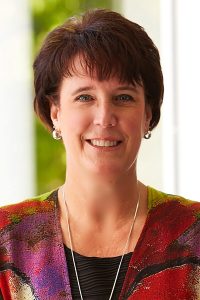
Martie Moore, MAOM, RN, CPHQ
Reducing Urinary Tract Infections through Lowering the pH of Skin by Applying a Novel Topical to the Perineum Area: An Innovative Approach to UTI Prevention
Urinary Tract Infections (UTIs) are a common and often recurring problem, particularly among post-menopausal women—the cost to the US Health system is over 1.8 billion dollars. Skin pH is an unrecognized tool in preventing UTIs.
A lower pH, typically between 4 and 6, helps create an acidic environment hostile to pathogenic bacteria. The perineum area is particularly susceptible to bacterial colonization and subsequent UTIs.
Lowering the pH of the skin in the perineum area by applying a novel topical solution is a promising method for reducing the incidence of UTIs. The presentation will share lessons learned from a study conducted in a community care setting focused on reducing UTIs. It will also demonstrate the effectiveness and safety of this approach, making it a valuable addition to existing UTI prevention strategies.
Biography
Martie Moore is an accomplished executive with over 35 years of experience in healthcare, specializing in research, quality improvement, patient and resident safety, and the advancement of healthcare delivery systems.
Throughout her career, Moore has held key leadership roles, including Chief Nursing Officer at corporate, system, and Magnet-designated facilities. She has been instrumental in driving the implementation of evidence-based practices, fostering cultural transformation, enhancing patient and resident safety, and elevating organizational performance through quality improvement, systems thinking, and the practical application of knowledge.
Moore is also the co-author of The Leadership Sandwich, a book that explores innovative leadership strategies, now available on Amazon.
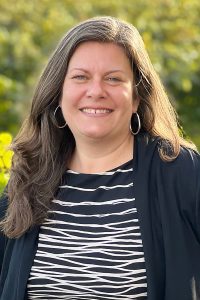
Tracy Morgan, MBA, Executive Director, Oregon and SW Washington Alzheimer’s Association
Challenges and Innovations in Aging: Caregiving Listening Post
Did you know that 80 percent of long-term care in the U.S. is provided by unpaid family caregivers? In Oregon alone, 470,000 family caregivers contribute unpaid care valued at $8.7 billion annually. While family caregiving has many joys, caregivers also face many challenges. Join us for this listening session to share your insights, experiences, and concerns as related to caregiving.
Session will also include updates from AARP and Alzheimer’s Association. Join the conversation.
Biography
Tracy Morgan is the Executive Director for the Oregon and SW Washington Alzheimer’s Association. She has been with the Association for 13 years. The Alzheimer’s Association is the leading voluntary health organization in Alzheimer’s care, support and research. In her role she leads a team of 12 staff across the chapter who move forward the great work of the association in six strategic pillars : care and support, advocacy and public policy, concern and awareness, diversity equity and inclusion, research and development efforts to fuel the mission. Tracy has her MBA from Rochester Institute of Technology and her bachelors degree in Marketing, Management and Accounting from Keuka College. In her spare time she loves camping, entertaining and family time.
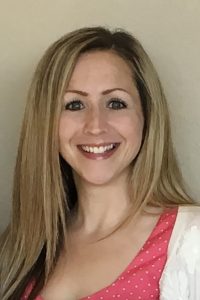
Carolyn Scarbrough, Director of The Marion Polk Food Share Meals on Wheels
Meals On Wheels: It’s More Than Just a Meal
The Marion Polk Food Share Meals On Wheels program focuses on the health, independence and social well-being of seniors and adults with disabilities in the Salem and Keizer area (Meals on Wheels is a nationwide program). Through community partnerships of over 325 volunteers, Northwest Seniors and Disability Services, dedicated employees and donors they can provide over 20,000 meals a month to their clients.
Each meal delivery is also an opportunity to do a wellness check on their clients. The ongoing focus and goal of Meals on Wheels is to provide as many nutritious meals as possible to the more vulnerable groups (seniors and adults with disabilities) with low-income status and homebound. The Meals on Wheels team continues to build new and stronger connections with health agencies, hospitals, case managers and social workers to increase awareness of food availability in the Salem/Keizer area.
Biography
Carolyn Scarbrough is the compassionate leader behind Marion Polk Food Share’s Meals on Wheels program in Salem, Oregon. Equipped with a Bachelor’s of Science Degree in Public Health with a focus on Gerontology from Oregon State University, Carolyn brings over two decades of experience in senior and disability care within community-based settings.
Licensed as a Residential Care Administrator in Oregon for 14 years, Carolyn’s transition to the non-profit sector signifies her commitment to supporting vulnerable seniors and individuals with disabilities. Her mission is clear: to ensure that every member of our community receives the nutritional support they need to maintain independence at home.
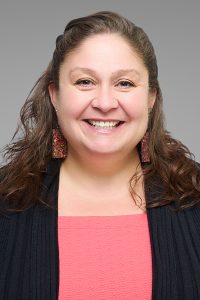
Kimberly Schlegel, LCSWA, MSW, CMC
Supporting Older Adults with I/DD and Dementia Training
This presentation will focus on how healthcare professionals and caregivers of individuals with Intellectual and Developmental Disabilities (I/DD) can support them through the aging process, specifically when there are indicators of dementia present. Participants will learn about the aging process, including similarities and differences between neurotypical and neurodiverse populations. Special attention will be paid to differential diagnosis and diagnostic overshadowing of individuals with I/DD and dementia.
Participants will learn about signs of dementia for individuals with I/DD as well as techniques to support effective communication, address unexpected behaviors, and incorporate cultural humility when supporting older adults with I/DD and their families.
By reviewing the latest research findings and engaging in interactive activities, attendees will identify action steps to support older adults with I/DD and dementia.
Learning Objectives:
Upon completion of this workshop, participants should be able to:
- Distinguish between ‘typical’ aging and ‘atypical’ aging
- Describe and identify instances of diagnostic overshadowing for adults with I/DD and dementia
- Explain how dementia may appear differently in adults with I/DD
Target Audience:
Self-advocates, caregivers of adults with I/DD, direct support staff, social workers, care managers, psychologists, psychiatrists, counselors, mental health professionals, nurses, health and human services practitioners, physicians, residents, CNAs, any other healthcare professional working with older adults
Program Agenda:
This workshop will be divided into three, one-hour long sessions.
- Session 1: Introduction to Aging, I/DD and Dementia
- Session 2: Screening, Differential Diagnosis, Healthcare Advocacy
- Session 3: Care Strategies, Cultural Considerations, Wrap-up, Questions
Biography
Kim Schlegel, MSW, LCSWA, CMC, is a social worker in the Department of Psychiatry at the University of North Carolina at Chapel Hill. She is the Intellectual and Developmental Disabilities (I/DD) Coordinator at the UNC for the North Carolina – Psychiatric Assess Line (NC–PAL) I/DD Team. She is also the I/DD Task Force Coordinator for the School of Social Work at UNC-Chapel Hill. Ms. Schlegel has supported individuals with I/DD and their families for over twenty-five years in a number of roles including I/DD Care Manager, direct support staff, staff supervisor and trainer, and music therapist. Ms. Schlegel is dedicated to creating and offering support to individuals with I/DD and their families to ensure they have support to live their best lives in all environments.
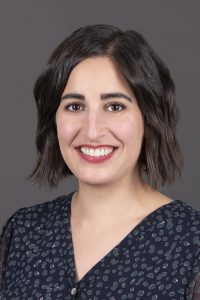
Adi Shafir, MD, Assistant Professor in Geriatrics and Palliative Medicine at Oregon Health & Science University
Addressing Social Isolation and Loneliness in Older Adults
This presentation will define and describe social isolation and loneliness in the older adult population, and how these concepts differ. We will discuss tools that can be used to screen for social isolation and loneliness and review the clinical implications and harms to health and wellbeing. Finally, we will identify resources for combating isolation and loneliness in older adults and how to take a targeted, multidisciplinary approach to management.
Biography
Dr. Adi Shafir (she/her) is an Assistant Professor in Geriatrics and Palliative Medicine at Oregon Health & Science University. She attended medical school at University of Pittsburgh School of Medicine, completed Internal Medicine residency at University of Pittsburgh Medical Center and a combined geriatrics and palliative care fellowship at University of California San Francisco. She is a native Californian but has been living in Oregon since 2021. She practices outpatient palliative care at OHSU and teaches medical students.
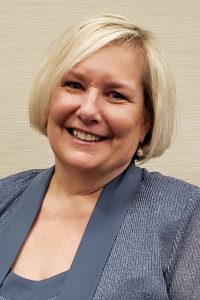
Marcy Joy Shanks, MSN, MSEd, RN
Reviving Faith Community Nursing in Rural Oregon
This session will chronicle the bumpy and oft surprising journey of a small group of passionate faith community nurses (FCNs) and health ministers as they embarked on interprofessional collaboration with local community-based organizations to rekindle engagement in faith community nursing and health ministry in rural East Linn County, OR. Attendees will hear how these local collaborations soon capture the attention of the Oregon Health Authority, the Oregon State Board of Nursing, local health system leaders, and Medicaid providers, resulting in high-level interest in faith community nursing and health ministry and how they are leveraging this increased visibility to gain acceptance of this important practice within faith communities in their own backyard.
At the completion of this session, attendees should be able to:
- List three partnerships that have shaped the recent resurgence of health ministry in Oregon
- Describe how faith community nurses, health ministers, and community health workers bring improved health equity to rural Oregonians
- Use examples to illustrate the importance of providing spiritual care in the context of an individual’s faith tradition
Biography
Marcy is the Ethics Officer and an active Faith Community Health Network Board Member, assisting in all aspects of leadership, including grant writing and public speaking. She is a full-time faculty member in the Linn-Benton Community College nursing program and has worked extensively with students in the clinical settings and in the classroom to push them to think beyond the obvious and be ready to analyze and identify problems early to improve patient outcomes. As clinical coordinator, Marcy’s primary responsibilities include ensuring clinical placements for students, supporting clinical instruction, and developing alternate avenues for engaging nursing practice with students, especially within community-based settings. Marcy is building a faith community nursing practice at New Hope Church in Lebanon, OR.
Marcy earned her BSN from Oregon Institute of Technology in Klamath Falls, her Master of Science in Health Education from Western Oregon University, and Master of Science in Nursing Western Governors University. She completed the Foundations of Faith Community Nursing/Health Ministry Course through the Faith Community Health Network.
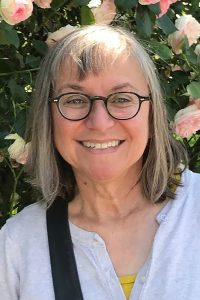
Kathy Sharp, MA Education, Author Aging Into Poverty
Aging Into Poverty: The Looming Crisis for American Women
Author, Kathy Sharp, will discuss the growing crisis in America. As many as 1:5 women find themselves living at the poverty level as they age. This session will explore the scope of the problem and the history of how we have cared for dependent seniors in the past. The session will explore how, as caregivers, women may put themselves at risk for falling into poverty later in life. The session will also discuss solutions for families in the current patchwork income support and healthcare landscape. Kathy’s book and research came from her lived experience as her mother’s caregiver.
Biography
Kathy Sharp, author of Aging Into Poverty: The Looming Crisis for American Women, draws on her M.A from Stanford University in Education, her technology background, and her experience in managing federally funded programs to create a compelling work, rich with personal narrative, honest emotion, and extensive policy and services detail.
A native Californian, Kathy now lives outside of Portland, Oregon, and is working to combat senior hunger with the Portland Fruit Tree Project, Bethlehem House of Bread and the Association of Gleaning Organizations. Kathy is a member of the Oregon AARP Speaker’s Bureau focusing on caregiving.
Pick up your copy at the conference bookstore and meet the authors for a signing.
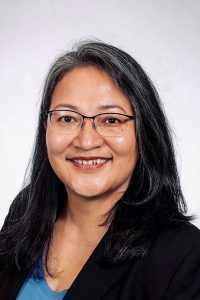
Bandana Shrestha, State Director, AARP Oregon
Challenges and Innovations in Aging: Caregiving Listening Post
Did you know that 80 percent of long-term care in the U.S. is provided by unpaid family caregivers? In Oregon alone, 470,000 family caregivers contribute unpaid care valued at $8.7 billion annually. While family caregiving has many joys, caregivers also face many challenges. Join us for this listening session to share your insights, experiences, and concerns as related to caregiving.
Session will also include updates from AARP and Alzheimer’s Association. Join the conversation.
Biography
Bandana Shrestha is the State Director for AARP Oregon where she leads and supports AARP vision of health security, financial resilience, and community engagement for over 500,000 members, as well as Oregonians 50+ and their families across the state. She is a graduate of Linfield College and University of Oregon.
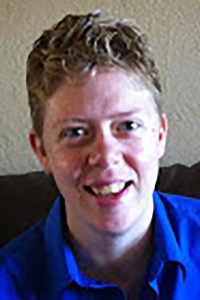
Lori Stanton, MA, Program Director and DEI pillar lead for the Alzheimer’s Association Oregon and SW Washington Chapter
Alzheimer’s, Dementia and Communication
Communicating effectively teaches how dementia affects communication, including tips for communicating well with family, friends and health care professionals.
After this program, you will be able to:
- Explain how dementia affects a person’s ability to communicate
- Describe how a person-centered approach can help with communication challenges
- List strategies to help you communicate well with a person living with dementia
- Identify ways to improve communication with family, friends and health care professionals
Biography
Lori Stanton is the Program Director and DEI pillar lead for the Alzheimer’s Association Oregon and SW Washington Chapter. Lori earned a duel Master of Arts degree in Social Gerontology and Advocacy from Alaska Pacific University. Lori started her journey in Elder Care as a volunteer in Adult Day Services at the age of nine, and continued her volunteer work culminating in over 10,000 hours of community service by the time she was a senior in high school. Lori has worked in the field for over 25 years, and assisted The Salvation Army Serendipity Adult Day Services in becoming the first Adult Day in the Nation to receive the Excellence in Care, Dementia Program of Distinction award from the Alzheimer’s Foundation of America. Lori has worked for the Alzheimer’s Association for the past 11 years and currently resides with her lovely family in the beautiful and scenic Grants Pass.
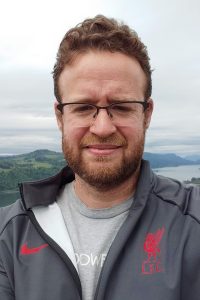
Jesse Sweet, Policy Analyst, Oregon Psilocybin Services Section, Oregon Health Authority, Public Health Division, Center for Health Protection
Oregon Psilocybin Services Update
Psilocybin, a naturally occurring psychedelic compound found in over 200 species of mushrooms, has been used for centuries by indigenous and tribal communities worldwide for spiritual, ceremonial, and other purposes. Emerging research suggests psilocybin may offer relief for depression, anxiety, end-of-life distress, trauma, and excessive alcohol, tobacco, and substance use. In 2020, Oregon voters approved the Psilocybin Services Act.
Join Dr. Em Trubits and Jesse Sweet, Oregon Psilocybin Services Section, as they share updates on the challenges and successes of implementing the Psilocybin Services Act and developing safe, effective, and equitable psilocybin services in Oregon. They will also discuss how this initiative supports the Oregon Health Authority’s mission to eliminate health inequities and contributes to broader public health efforts, including Oregon’s State Health Improvement Plan, Healthier Together Oregon.
While the research is promising, psilocybin remains classified as a Schedule I substance under the Federal Controlled Substances Act. Attendees will better understand the science, history, challenges, and successes of implementing the Psilocybin Services Act. Oregon shifts from a drug policy approach rooted in the ‘War on Drugs’ to a health-focused model that offers new opportunities for healing and wellness.
Biography
Jesse Sweet serves as Policy Analyst for the Oregon Psilocybin Services Section with the Oregon Health Authority. He assists with development of policy for Oregon’s first-in-the-nation program for production of psilocybin and sale of psilocybin products and services. He supports the Oregon Psilocybin Advisory Board, drafts administrative rules and contributes to program implementation. Prior to joining the Oregon Health Authority, he worked on alcohol and cannabis policy. He holds degrees from University of Oregon School of Law and Oberlin College.
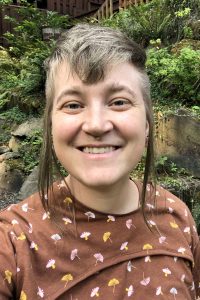
Em Trubits, Ph.D.
Oregon Psilocybin Services Update
Psilocybin, a naturally occurring psychedelic compound found in over 200 species of mushrooms, has been used for centuries by indigenous and tribal communities worldwide for spiritual, ceremonial, and other purposes. Emerging research suggests psilocybin may offer relief for depression, anxiety, end-of-life distress, trauma, and excessive alcohol, tobacco, and substance use. In 2020, Oregon voters approved the Psilocybin Services Act.
Join Dr. Em Trubits and Jesse Sweet, Oregon Psilocybin Services Section, as they share updates on the challenges and successes of implementing the Psilocybin Services Act and developing safe, effective, and equitable psilocybin services in Oregon. They will also discuss how this initiative supports the Oregon Health Authority’s mission to eliminate health inequities and contributes to broader public health efforts, including Oregon’s State Health Improvement Plan, Healthier Together Oregon.
While the research is promising, psilocybin remains classified as a Schedule I substance under the Federal Controlled Substances Act. Attendees will better understand the science, history, challenges, and successes of implementing the Psilocybin Services Act. Oregon shifts from a drug policy approach rooted in the ‘War on Drugs’ to a health-focused model that offers new opportunities for healing and wellness.
Biography
Dr. Em Trubits (they/them) serves as Research Analyst for the Oregon Psilocybin Services Section with the Oregon Health Authority. They support planning and coordination of research and evaluation of the first-in-the-nation program for production of psilocybin and sale of psilocybin products and services. Prior to their work at Oregon Health Authority, they completed their PhD in Applied Social Psychology at Portland State University with research focused on close relationships and mental health.
Special Guests
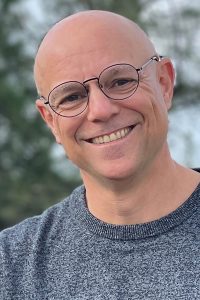
Peter Dudley, Author
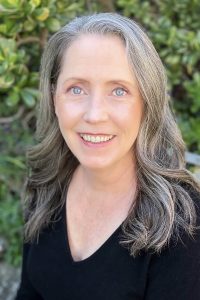
Antoinette LeCouteur, Author
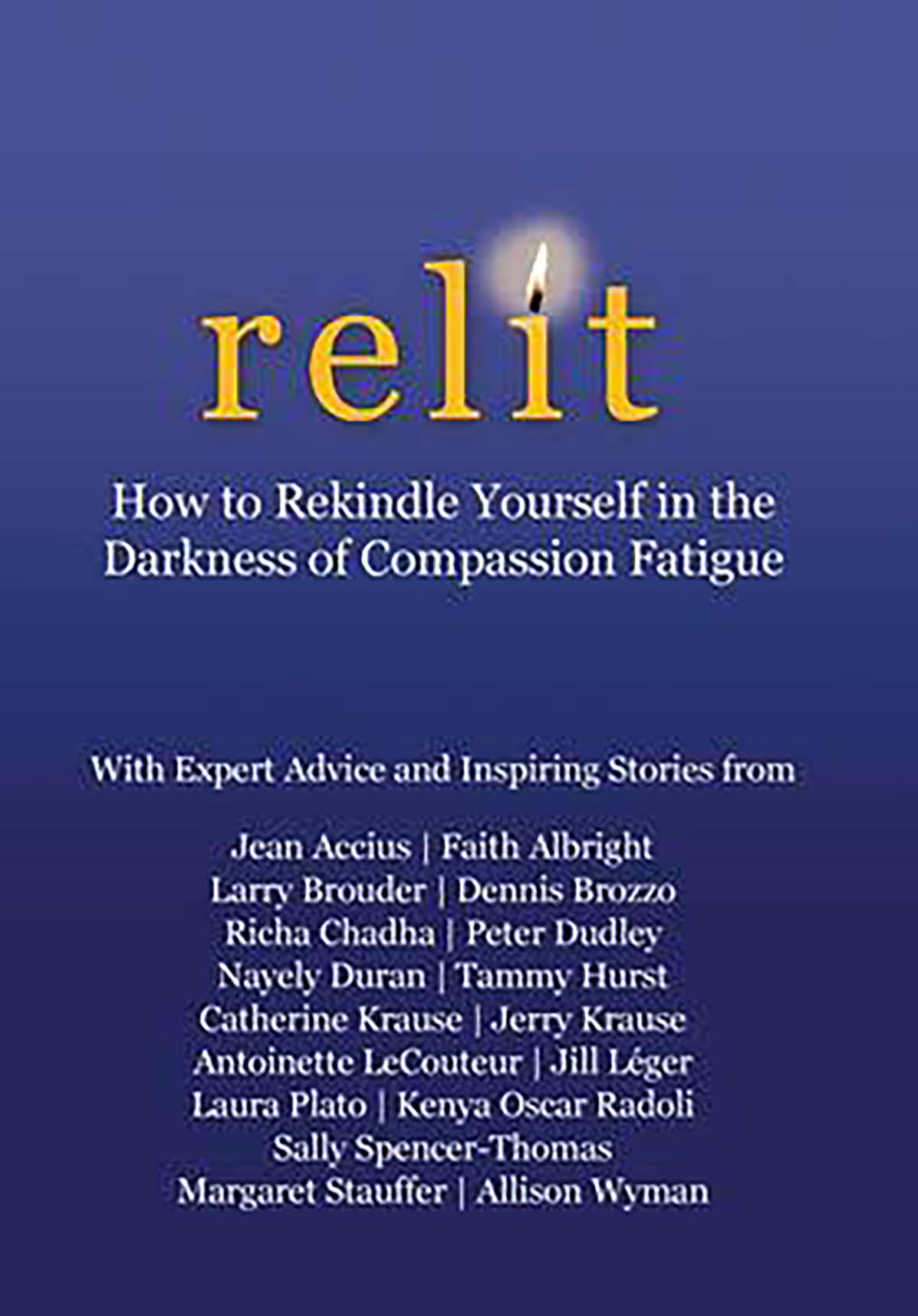
About RELIT: Rekindling Yourself in the Darkness of Compassion Fatigue
About RELIT: Rekindling Yourself in the Darkness of Compassion Fatigue
Compassion fatigue is one of the most pervasive and least discussed traumas that nearly every caregiver feels at one time or another. Millions of people choose a helper profession (everything from nurse to lawyer to therapist to veterinarian) because they care deeply and feel called to service. Millions more are thrust into unpaid caregiving roles due to illness, injury, or the natural course of aging. Nearly everyone in a heart-based role has experienced some sort of compassion fatigue or burnout. And nearly everyone feels guilt and shame for their fatigue. They are caregivers; shouldn’t they be unstoppable and invincible? This book brings together experts from a variety of professions, backgrounds, and cultures to tell their stories of experiencing compassion fatigue and to give practical, useful, actionable advice and solutions on how to build personal resilience, how to avoid compassion fatigue, and how to rekindle your own spirit when compassion fatigue and burnout drag you down into the darkness.
Pick up your copy at the conference bookstore and meet the authors for a signing.

